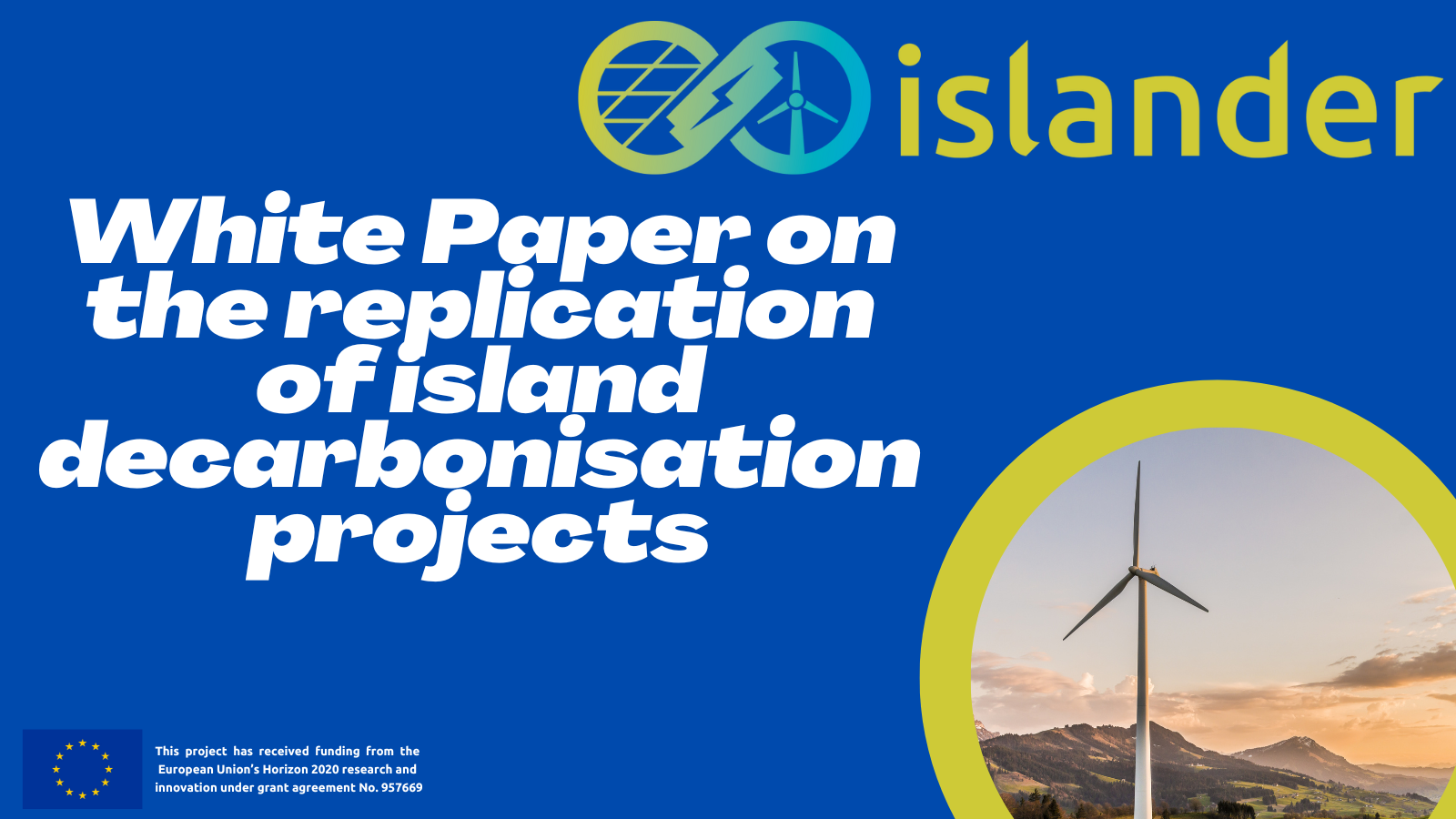In the quest for a sustainable future, ten EU-funded projects, with the common goal of decarbonising geographical islands, have joined forces to identify the challenges and opportunities associated with the replication of island decarbonisation projects as well as to provide relevant regulatory, socioeconomic, and technical recommendations.
The replication of projects aimed at decarbonizing islands holds immense importance in the context of the European Commission’s climate goals for 2030 and 2050. Ten H2020 projects, represented in this joint effort, offer solutions for cost-efficient, flexible, and secure energy systems. Besides ISLANDER, the following projects are involved: GIFT H2020, IANOS H2020, INSULAE H2020, MAESHA H2020, NESOI European Islands Facility, REACT H2020, ROBINSON H2020, SOCLIMPACT H2020 and VPP4ISLANDS H2020.
Throughout the implementation of these projects, a wide range of findings related to the replication of island decarbonization projects has been collected. These findings span socio-economic and technical dimensions, offering a comprehensive understanding of the challenges and opportunities associated with replication.
Identified challenges in Replicating Island Decarbonization Projects
-
-
-
- Developing clear and comprehensive replication guidelines
-
- Adhering to existing regulations and policies
-
- Securing adequate financial resources and funding
-
- Gaining acceptance for sustainable initiatives
-
- Adapting and modifying project solutions to suit different island contexts
-
- Scaling up sustainable initiatives to cover larger areas or multiple locations
-
- Identifying and engaging the right stakeholders
-
- Ensuring that all relevant actors receive the necessary support
Relevant Tools for Successful Replication
The reported findings assure the successful replication of project solutions, achieved through engagement with local communities and individuals to raise awareness about these solutions. Several projects have developed tools and technologies to facilitate replication:
-
-
-
- ROBINSON: Development of decision support and replication up-scaling tools.
- SOCLIMPACT: Development of the “Adaptation Support Tool for Islands” to facilitate virtual matchmaking and networking sessions between consortia and island stakeholders.
- VPP4ISLANDS: Definition of AI-based planning and forecasting tools.
- IANOS: Development of the IANOS Island Energy Planning and Transition Suite for technology replicability assessment.
- INSULAE: Creation of the Investment Planning Tool (IPT) for energy strategy development.
- GIFT: Development of innovative technologies for energy storage, flexibility and grid management.
Socio-economic and Technical Recommendations
Considering the socio-economic and technical findings, significant improvements are needed for the replication of the project solutions. The following technical and socio-economic recommendations are intended to support the achievement of the 2030 and 2050 climate targets:
-
- There is a vital need for long-term planning and integrated strategies to ensure the sustainability of replication efforts
- Innovative financing mechanisms should be explored to secure the necessary funds for replication.
- Incentives such as carbon pricing mechanisms and electrification of transportation incentives can drive the adoption of sustainable practices.
- Engagement with Policymakers and government agencies is essential to gain support and alignment with replication goals.
- Implementing supportive policies and regulatory frameworks can facilitate the replication process.
- Modification of safety regulations to accommodate innovative technologies and practices is necessary.
- Capacity Building programs should be implemented to enhance the skills and knowledge of local stakeholders.
- Encouraging innovation and facilitating technology transfer are essential for successful replication.
- Supply Chain Security for necessary resources is crucial for project replication.
- Mature market frameworks and actions to further develop them are vital for sustainability.
- Combining Business Cases with Use Cases can drive the adoption of sustainable solutions.
- Awareness Campaigns, success stories, case studies, and best practices should be shared to inspire and inform.
Read the full white paper here: https://islander-project.eu/wp-content/uploads/2023/09/White-Paper-on-Replication_250923.pdf

Follow us